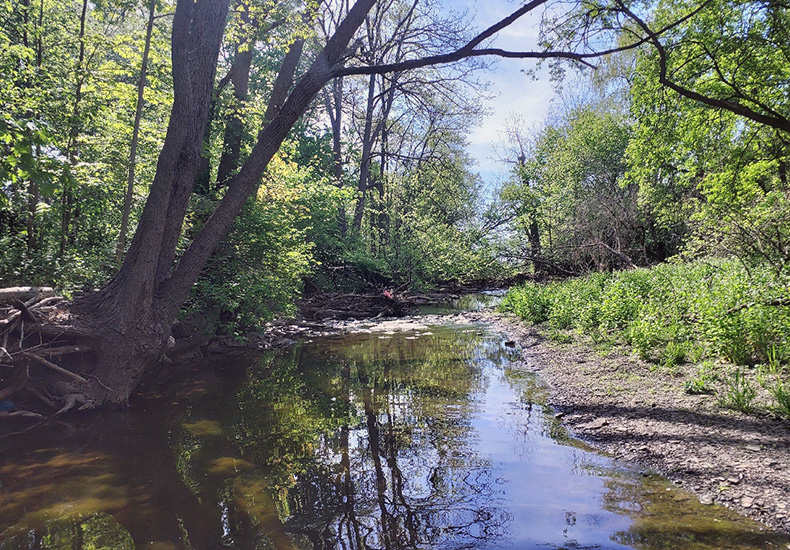Creeks
Oakville’s natural areas are made up of woodlands, meadows, wetlands, valleys, creeks and streams.

In addition to the two major watercourses, Sixteen Mile Creek and Bronte Creek, there are 14 other creeks within the Town of Oakville, including:
Creek condition assessments are completed approximately every five years. The purpose of the condition assessments is to:
Do your part to protect creeks by following these guidelines:
Creeks are not for recreation
ServiceOakville
905-845-6601